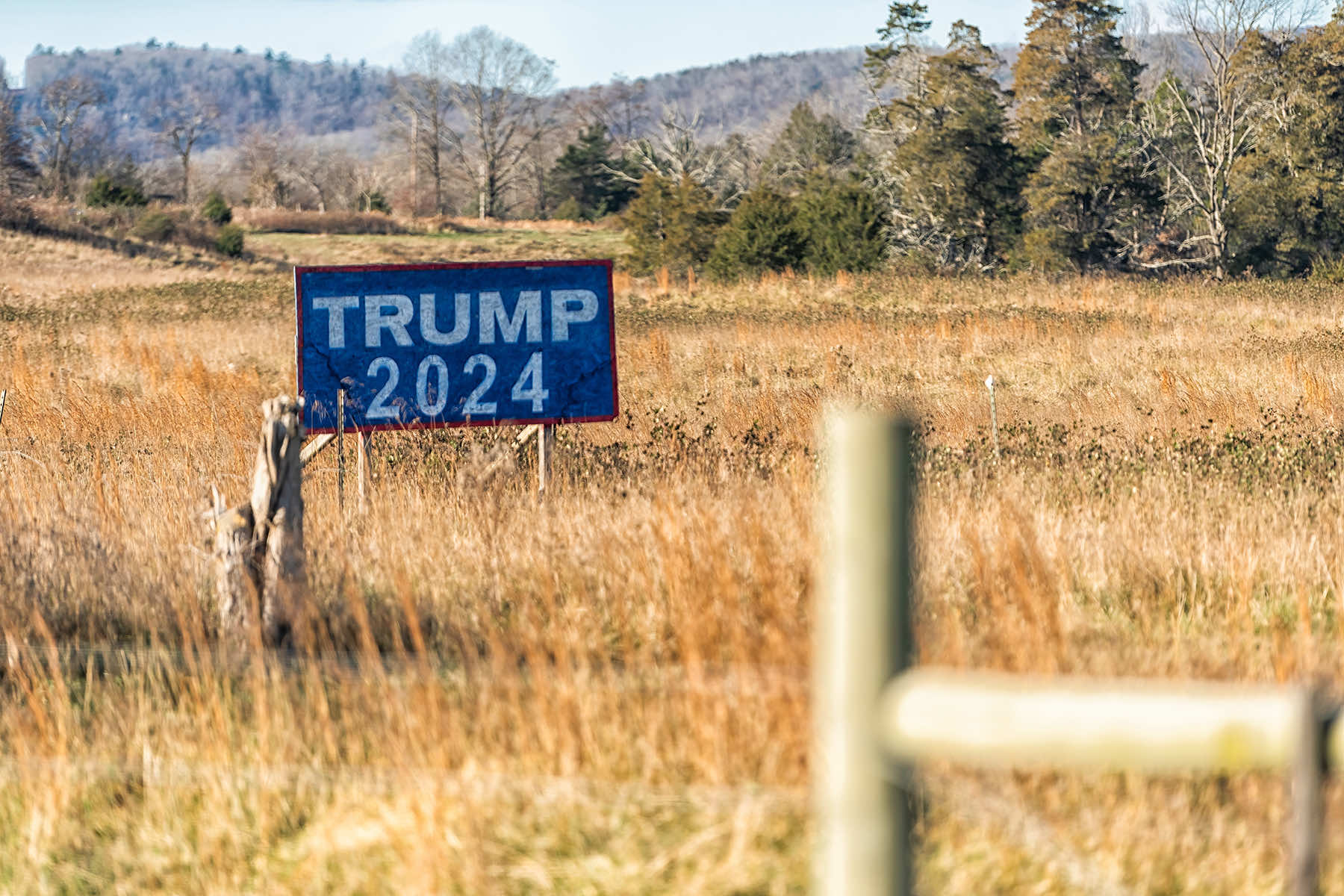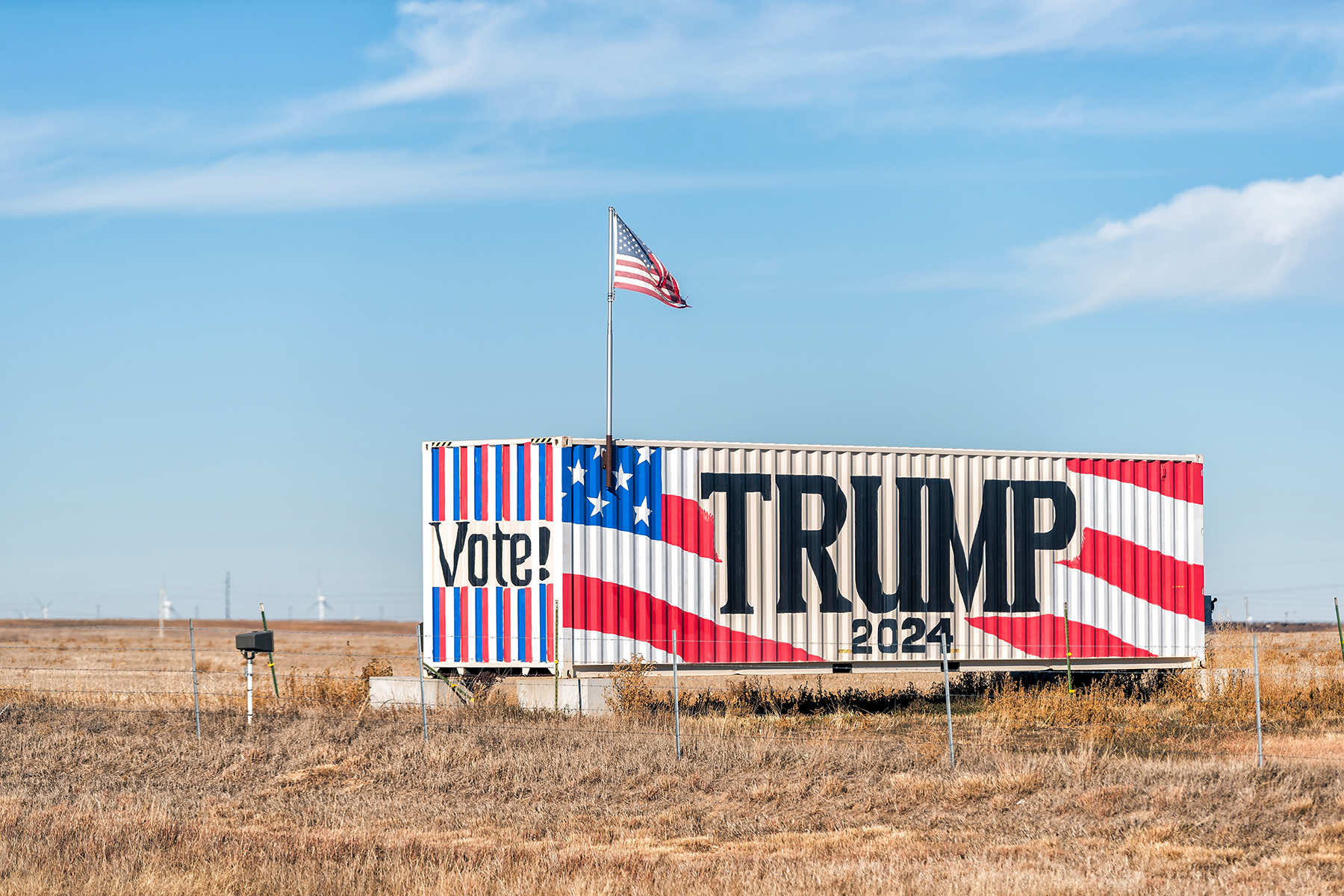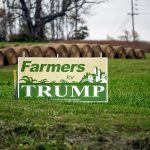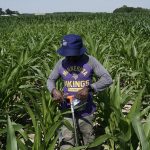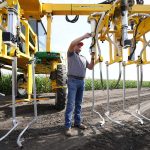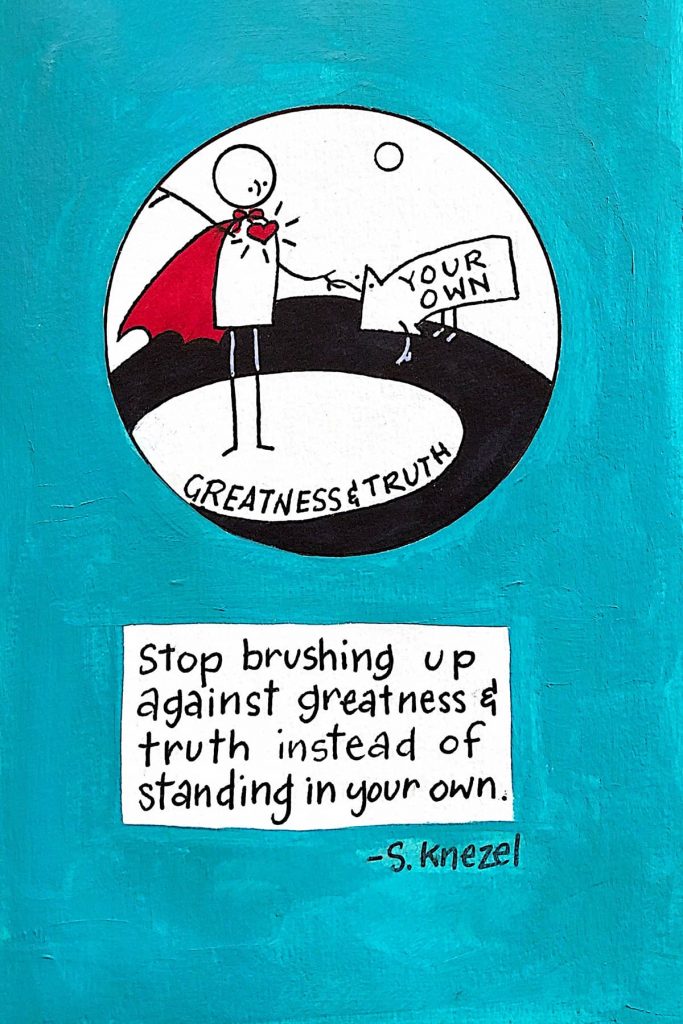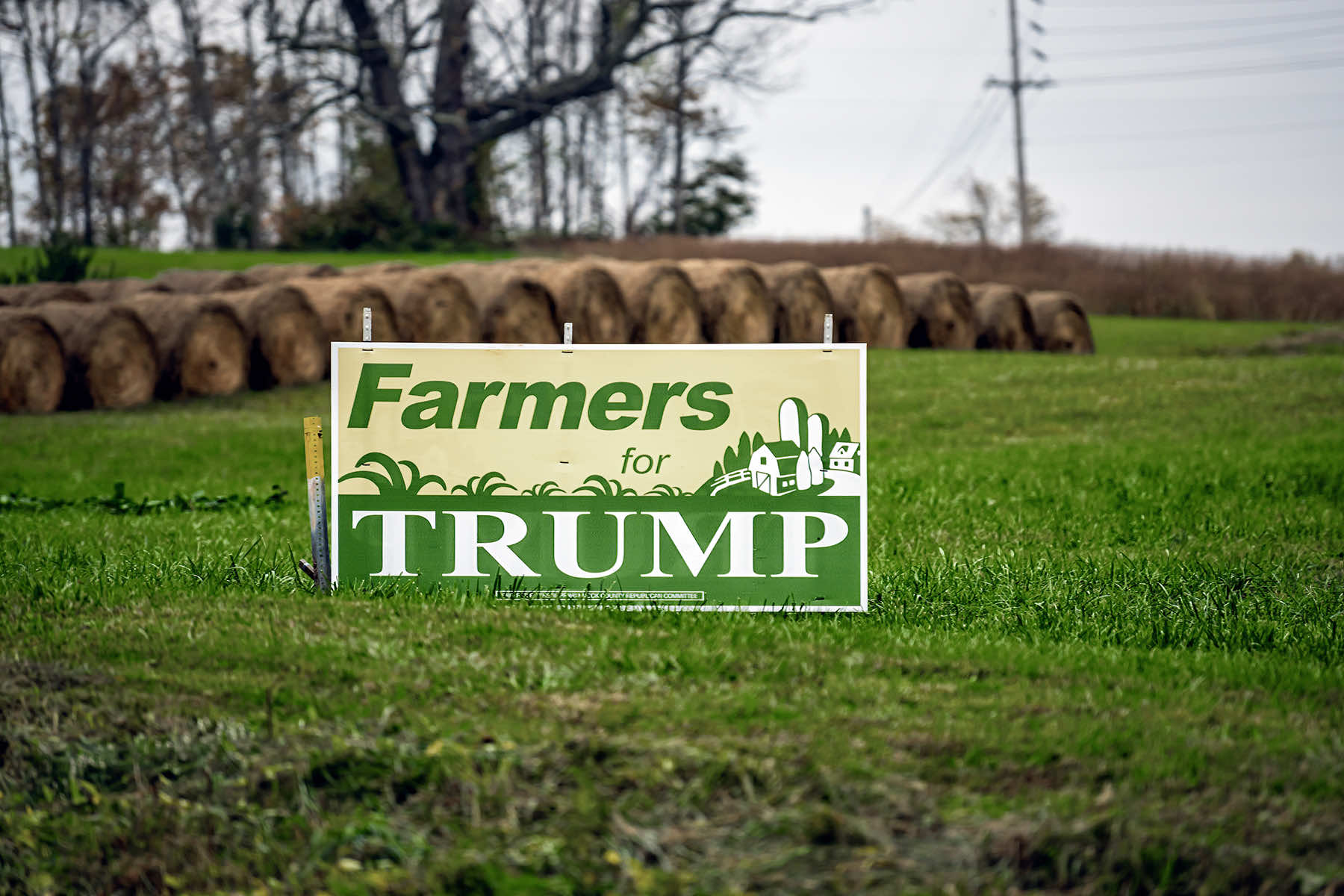
Farmers across America have become a political paradox. They have rallied for free markets, decryed “handouts,” and scorning safety nets as socialist overreach, until those very mechanisms were needed to serve them.
Today, they are demanding yet another multibillion-dollar federal bailout, arguing that without it, the nation’s food supply will collapse. But this plea comes not from victims of unforeseen disaster, but from architects of their own economic ruin.
Farmers overwhelmingly supported Donald Trump in the 2024 election. In Wisconsin, Trump carried the rural vote by more than 22 points, flipping farm-heavy counties once considered politically mixed.
Nationwide, in 444 counties classified by the USDA as farming-dependent, Trump won all but 11, capturing nearly 78% of the vote, according to Investigate Midwest. The same communities now suffering under Trump’s renewed trade war and gutted agricultural programs are those that cheered him into office.
They cannot have it both ways.
A free market is not a buffet where one takes the profits and leaves behind the risks. The foundational conservative belief in personal responsibility must apply equally to agriculture as it does to every other sector.
When small retailers went under during COVID-19, farmers offered no solidarity. When urban economies collapsed under public health restrictions, many rural voices condemned aid programs as wasteful or immoral.
And yet now, as Trump’s policies choke their markets, slash federal support systems, and escalate the climate-related disasters plaguing the Midwest, these same farmers demand rescue from the very government they wish to see dismantled.
There is no clearer example than the tariff crisis. Trump’s renewed trade offensive has triggered retaliatory tariffs from China and Mexico, two of the most critical markets for American agriculture. Texas and Midwest farmers selling sorghum, corn, and wheat now face taxes as high as 125% on exports to China, slashing demand for products already planted or harvested.
Wisconsin farmers are now experiencing the same blowback. The state is the nation’s leading producer of cultivated ginseng, accounting for more than 95% of U.S. production, and nearly all of it is exported, primarily to China.
In 2023, Wisconsin’s ginseng exports fell by more than 60% compared to pre-trade war levels, according to USDA trade data. Soybeans tell a similar story. China was once the top foreign buyer of Wisconsin soy, but retaliatory tariffs imposed during Trump’s first term in 2018 triggered a prolonged collapse in exports.
While global prices have partially recovered, Chinese demand has not, and farmers across the state are still absorbing the costs of a market they helped destroy through their own voting patterns. Not once, but twice. This is not an unforeseen natural disaster. It is a direct result of elected policy, a deliberate economic strategy embraced by the farming bloc at the ballot box.
During Trump’s 2018-2019 tariff war, the federal government was forced to spend $23 billion bailing out American farmers. Not because of hurricanes or floods, but because of diplomatic mismanagement that farmers and agricultural communities continued to support.
The result was a temporary financial buffer, not a structural fix. Now history repeats itself, but with even fewer safety nets and even more reckless trade decisions. It is not the job of urban taxpayers, struggling families, or small business owners to continually absorb the costs of rural economic malpractice.
That does not mean no one deserves help. But there is a threshold for sympathy, and it must come with accountability. Farmers were not misled. They were warned. Agricultural experts, economists, and trade advisors laid out the consequences of Trump’s policy agenda well before ballots were cast.
Instead of choosing leadership that offered structural reform, climate adaptation, and market diversification, they chose grievance politics and promises of deregulation. They voted to burn the system and now scream for water.
Nowhere is this dynamic more pronounced than in Wisconsin. A state where dairy farmers dominate the rural economy, voters handed Trump a net gain of 29,000 rural votes in 2024. These same communities now face the collapse of support systems designed under the Biden administration to help small and medium-sized operations modernize and adapt.
From the cancellation of local food procurement programs to the gutting of USDA conservation funding, the dismantling has been swift and ideologically driven. And yet the cries for help echo louder than ever.
Farmers insist they are essential, an irreplaceable pillar of national security. But that importance cannot become a bargaining chip, a way to hold the country captive during every downturn they helped engineer. If their survival depends on public funding, then their operations are not free-market businesses. By definition, they are state-dependent enterprises.
And if they truly believe in the capitalism they so often invoke, then they must accept the consequences of risk.
The climate crisis cannot be ignored either. The flooding in Texas and across the Midwest has been catastrophic. Crops have rotted, fields drowned, and millions of dollars lost. But even these climate-fueled disasters intersect with politics.
Trump has slashed federal climate funding, gutted the USDA’s environmental programs, and overseen the mass firing of conservation staff. Farmers helped put this policy in place. They did not advocate for protection, they fought against it. To demand aid now is to ask others to pay for a gamble they made in full view of the odds.
Under these conditions, such bailout demands are not requests for survival, they are ultimatums. Implicit in the messaging from farm lobbyists and Republican lawmakers is the idea that without immediate intervention, the American food supply is in jeopardy. But this veiled threat must be seen for what it is: political extortion.
The food system cannot be treated like a hostage crisis every election cycle. If these operations cannot withstand the economic conditions they vote for, then they are not viable businesses. They are ideological dependencies cloaked in rural nostalgia.
This is not a war against farmers. It is a reckoning with hypocrisy.
Every American deserves a chance to succeed. But that includes immigrants, teachers, urban families, gig workers, and people of color who were demonized or abandoned during the COVID crisis by the same rural voters now pleading for help.
Where was this solidarity when urban hospital wards overflowed, when blue-state governors begged for masks, when stimulus checks were derided as “welfare” and SNAP benefits attacked as handouts?
Even before COVID, many rural Americans made it clear that they did not care about urban difficulties. They routinely said so in countless news interviews for years. And then, specifically during the pandemic, which was a problem for the cities and not for the rural folks.
That selfish detachment was part of a broader conservative culture war that framed compassion as weakness, celebrated cruelty as virtue, and mocked anyone who showed concern for others. But now, facing a crisis of their own making, they turn to the people whom they called “snowflakes,” demanding empathy for their self-induced suffering.
It is not just hypocrisy, it is theft of hard-earned taxpayer dollars. They ridiculed the idea that anyone deserves help, regardless of their position in life. So why, by their own logic, should anyone waste compassion on them? It sounds coldhearted and un-Christian, but they made the rules. So, let them live by those rules.
The double standard is clear. Rural suffering is treated as patriotic, while urban poverty is framed as personal failure. Conservative media paints farmers as heroes and essential workers, but sneers at single parents in cities trying to make ends meet on minimum wage.
During COVID, undocumented workers labored in shuttered and understaffed pork plants, risking their lives and dying so American families could keep bacon on the table. Yet these essential workers were denied the most basic protections or recognition.
When factories closed, rural voices cried for coal subsidies and manufacturing bailouts. Yet when urban communities ask for housing assistance or transit funding, they are told to stop living off the government. It is long past time to apply a single standard.
The agricultural sector must evolve. That means rethinking the kinds of crops grown, the reliance on export markets, and the consolidation of land into ever-larger monoculture farms. It also means ending the cycle of political protectionism that rewards bad behavior.
If the American taxpayer is going to invest in rural economies, it should be through programs that promote sustainability, diversification, and fairness. Not knee-jerk subsidies to cover the fallout of political extremism.
Programs like the Partnerships for Climate-Smart Commodities and the Inflation Reduction Act’s conservation funding offered that opportunity. They aimed to modernize American farming, to make it more local, resilient, and adaptable. But these were not just defunded, they were vilified. Rural voters helped destroy them.
Now, small farms, especially those without access to capital or political connections, are left stranded. The same regime that these communities voted for is slashing USDA services, firing local staff, freezing vital programs, and delaying any emergency relief.
Elon Musk-linked cuts to the USDA have left field offices hollowed out. The Trump regime’s war on “woke agriculture” has sidelined even nonpartisan, evidence-based initiatives. Farmers helped set this fire. They should not be surprised when it spreads to their own fields.
The consequences are real: soil degradation, loss of water access, chemical overuse, disappearing pollinators, and collapsing rural economies. But these are not consequences of neglect, they are consequences of toxic policy.
Rural voters did not choose leaders focused on adaptation or science. They chose vengeance and slogans. Now, when the crops fail and the markets dry up, they reach out to the very hands they once slapped away.
Accountability is not cruelty. It is a condition of democracy.
Farmers knew what Trump represented. His tariffs, deregulation, hostility toward climate policy, and disdain for international cooperation were not hidden. They were celebrated. And now that those very policies are bringing devastation, it is not the role of those who voted against him to pick up the bill.
No one should starve. No one should suffer needlessly. But a bailout is not the only path forward, and certainly not a no-strings one. If aid is to be given, it must come with deep reform, mandatory climate standards, anti-monopoly enforcement, and a full restoration of USDA capacity.
No blank checks. No more “emergency” fixes that feed only the largest agribusinesses while abandoning small, local farms.
Rural America made its choice. If the goal is to protect the nation’s food supply, then the solution is not endless appeasement. It is a transformation. The era of unconditional farm bailouts must end.
© Photo
Bill Chizek, Ken Schulze, Kristi Blokhin, Ilia Bordiugov, The Old Major, Kurt Nichols, and Kristi Blokhin (via Shutterstock)





